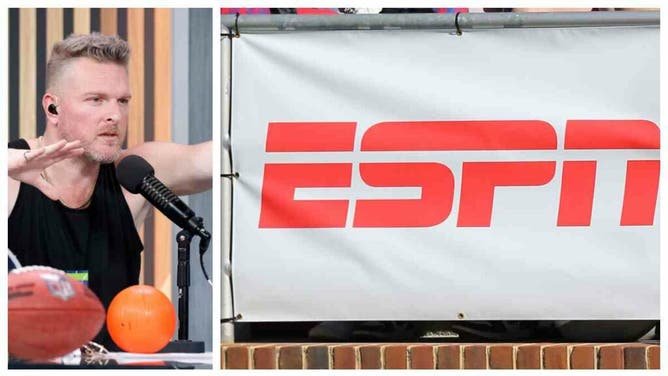ESPN Layoffs, Pat McAfee's Salary Are Unrelated Despite What Some Simple Minds Believe | Bobby Burack
Pat McAfee is trending on Twitter as ESPN continues to lay off various personalities.
The issue, at least online, is that ESPN signed McAfee for around $20 million a year and then cut $30 million worth of in-house salaries.
Already, ESPN has informed Max Kellerman Keyshawn Johnson, Jalen Rose, Suzy Kolber, and Jeff Van Gundy of their departures.
Thus, the timing has sports fans suspicious. Here are some of the trending tweets:
Certainly, signing a single person for nearly the amount of the 20-fired employees combined won't improve morale across ESPN.
However, the signing of McAfee and the layoffs are unrelated. The cuts are not a matter of clearing cap space.
ESPN laid off on-air talents to shed costs as part of parent company Disney's larger strategy. In short, the company's goal is to increase profits and hopes to achieve said mission by lowering salary costs.
Now, signing McAfee would seem to contradict the lowering salary costs part of the equation. But it doesn't.
See, ESPN and Disney expect McAfee to make the company money. Sure, the overhead is substantial. It's called business. One has to spend money to make money.
ESPN calculates McAfee will make the brand more money than he will cost it.
By contrast, ESPN figures the replacements of the likes of Kellerman, Johnson, Rose, Van Gundy, and Kolber will save more money than they will cost in quality declines.
Even if Jeff Van Gundy's replacement is a downgrade, color commentators don't move ratings.
Consider that Kellerman and Johnson each made around $5 million a year to host a morning radio show. ESPN can now replace them with a duo that makes around $1-2 million combined -- say, afternoon hosts Chris Carlin and Chris Canty.
So as long as the next duo doesn't decrease ad revenue by $8-9 million -- which it shouldn't -- the move would prove cost-effective.
Most media talents are replaceable. They are products of the brand for which they work.
Pat McAfee is his own brand.

The Pat McAfee Show may be heading to ESPN
McAfee is one of the few day-to-day attractions in sports media with a YouTube channel of over 2 million subscribers. The podcast version of his daily program is among the top downloaded in the industry.
He has proven to increase ad revenue and gambling sign-ups. His brand is monetizable via various social media platforms.
The network plans to utilize each of McAfee's previous revenue streams in addition to new avenues, such as linear television.
Hardly hyperbolic is it to say McAfee will make ESPN more money than the combined sum of all 20 of the personalities it cut on Friday.
ESPN offered McAfee a contract that his estimates project he's worth.
Stephen A. Smith, to whom ESPN pays $12 million a year, often says: you have to make your company money in order for you to make money.
As unfortunate as it is to see ESPN wreck the lives of various employees, most of them didn't make the company money.
Smith does. McAfee will.
Stars in media have never made more money than they do today. Why? Never before have media companies been as reliant on stars to generate profits.
Thus, the disparity between the upper and middle class
Yes, the perception of signing McAfee while a bloodbath ensues is crummy. But perception is not revenue.
ESPN laid off 20 on-air personalities for the same reason it signed McAfee: to increase profits.